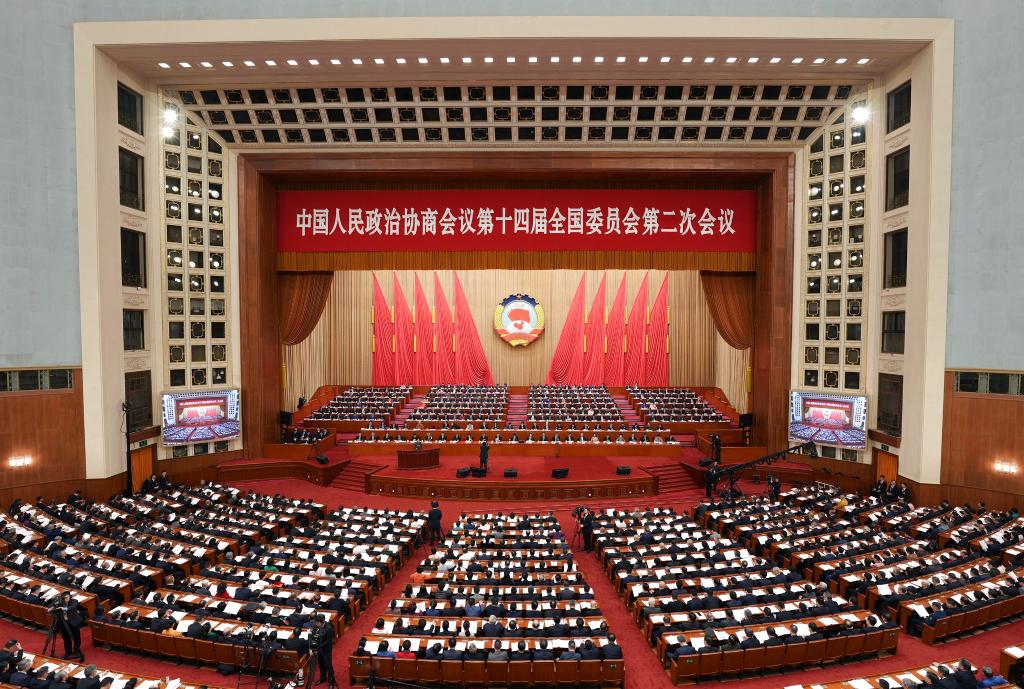
The third plenary meeting of the second session of the 14th National Committee of the Chinese People's Political Consultative Conference (CPPCC) is held at the Great Hall of the People in Beijing, capital of China, March 9, 2024. (Xinhua/Wang Jianhua)
The 14th National Committee of the Chinese People's Political Consultative Conference (CPPCC), China's top political advisory body, held the third plenary meeting of the ongoing annual session on Saturday.
Wang Huning, a member of the Standing Committee of the Political Bureau of the Communist Party of China (CPC) Central Committee and chairman of the CPPCC National Committee, attended the meeting.
During the meeting, 14 members of the CPPCC National Committee shared their views and suggestions on various topics concerning the country's development. Senior officials from the CPC Central Committee and the State Council were invited to the meeting and listened to the political advisors' suggestions.
Among them, Yang Yudong drew attention to the importance of fostering industrial workers as a vital force in developing new quality productive forces. He called for the development of high-level vocational education and a lifelong vocational skill training system.
Pansy Ho Chiu-king suggested that the Hong Kong Special Administrative Region should leverage its advantages in finance, trade, law and patents to contribute to the development of new systems for the country's higher-standard open economy.
Zhang Zongzhen called for accelerating the construction of the Guangdong-Macao In-Depth Cooperation Zone in Hengqin, in the city of Zhuhai. Zhang urged greater efforts to improve people's livelihoods and promote an appropriate level of diversity in the economy of the Macao Special Administrative Region.
Fu Zhiguan said that the mainstream opinion in Taiwan opts for peace, development, exchanges and cooperation, instead of war, recession, separation and confrontation. Fu said new paths should be explored for integrated development in all fields across the Taiwan Strait.
Huang Zhen proposed accelerating the establishment of a legal and regulatory system for achieving goals of carbon peaking and carbon neutrality to foster clear expectations for the future green development among the public and the industrial sector.